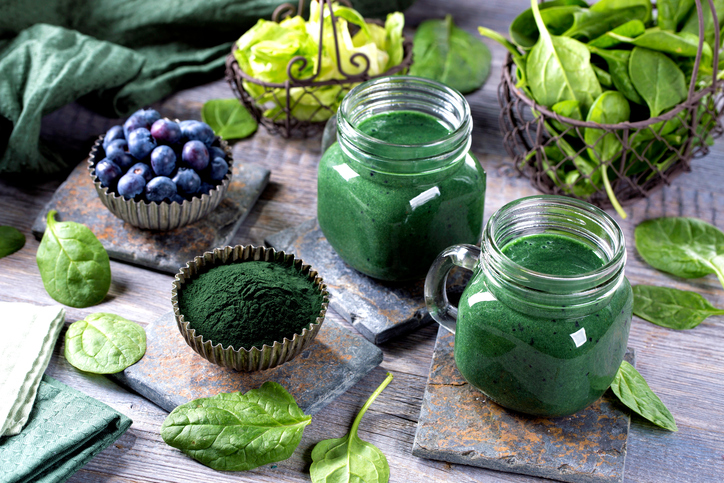Widely known as a nutritional superfood, spirulina is one of the most popular supplements of the last few decades. Rich in protein and micronutrients, spirulina is usually added to smoothies and other shakes for a richer, more nutrient dense diet.
Most spirulina comes in tablet or powder form. Spirulina powder is typically used in smoothies and shakes as an immune system booster and protein source. People that dislike the taste of spirulina often use spirulina tablets as a faster, more convenient alternative to the powder.
What is it that makes spirulina such an incredible superfood? From vitamins to minerals, Omega 3 fatty acids and macronutrients such as protein, spirulina has one of the best nutrient profiles of any naturally occurring food.
What is Spirulina?
Spirulina is a type of algae that grows in tropical lakes, rivers and other bodies of water. Widely regarded as one of the oldest life forms still existent on earth, spirulina has been used as a food source for hundreds of years, forming a major part of the Aztec diet until the 16th century.
In a powder form, spirulina has a dark green color. Most of the time, it’s served mixed with water or other drinks to add extra nutritional value.
The spirulina available from health food and supplement stores is dried and crushed into a fine powder, making it easy to mix with liquids. This process makes spirulina more convenient as a food source, but doesn’t negatively impact its nutrient profile.
Spirulina Nutritional Benefits
Spirulina is widely regarded as a “superfood” — a type of food that’s rich in a wide variety of important nutrients. Scientists have identified spirulina as a food source that can boost the immune system, reduce fatigue and increase mental and physical alertness.
The reason for this is that spirulina has one of the best macro and micronutrient profiles of a naturally occurring food. Spirulina is rich in numerous vitamins, minerals and micronutrients, making it an important part of promoting general health and wellbeing.
These micronutrients include vitamins A, E and K, which are all present in significant amounts in spirulina powder and tablets. Spirulina is also a rich source of magnesium, iron and calcium.
As well as having a great micronutrient profile, spirulina has an excellent macronutrient (protein, carbohydrate and fat) profile. Each 100 grams of spirulina contains 24 grams of carbohydrates, seven grams of fat and more than 57 grams of protein.
This means that spirulina powder is, pound for pound, an even greater source of protein than many “high protein” foods such as skinless chicken breast or egg whites. It’s also a complete protein source, meaning it contains all of the essential amino acids for muscle development.
This makes spirulina a great supplement for vegetarians and vegans, who may find it difficult to eat an adequate amount of complete proteins without consuming meat or animal products.
All in all, spirulina is a true superfood, and something that’s definitely worth considering for your diet if you’d like to consume more vitamins, minerals, micronutrients and macronutrients such as protein.



